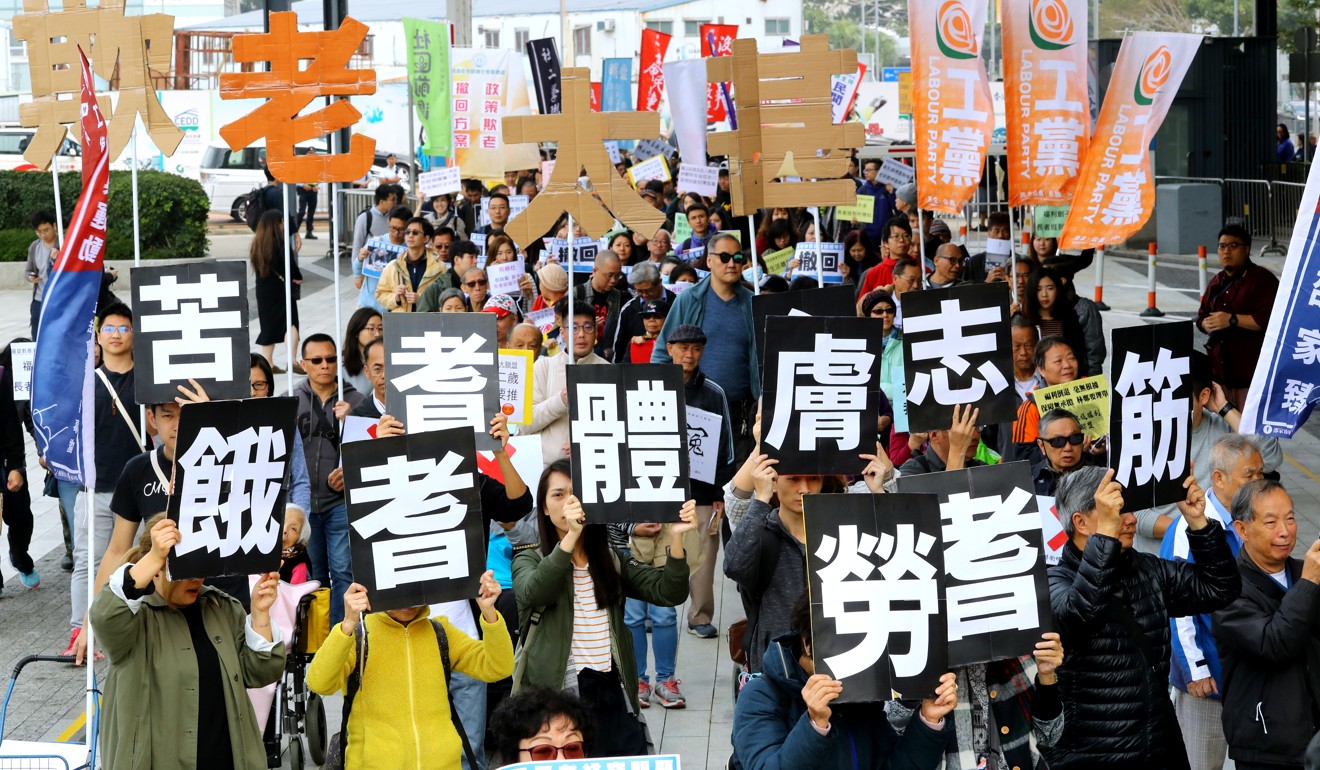
Hong Kong’s elderly will have to make their peace with working till they drop
- By raising the age cut-off for welfare payments to the elderly, the government was trying to address the reality of our ageing society. However, a more comprehensive approach that recognises the skills the elderly have to offer would be preferable

The Economist magazine reported last week that, for the first time in history, the Earth has more people over 65 than under five. This trend has profound implications for public policy everywhere. However, politicians globally have tended to address the consequences on an incremental basis rather than comprehensively.
In Hong Kong, we had an example of this recently when the government raised the age cut-off from 60 to 65 for those eligible to receive elderly Comprehensive Social Security Assistance (CSSA) payments.
The assumption now is that people below 65 are deemed fit to work, unless the contrary can be established, and should be actively looking for employment. From 65 onwards, the assumption is that a person should not be required to work to qualify for a higher level of public support.
People not eligible for the elderly CSSA payment would still qualify for the adult CSSA scheme, with additional means tests. Nobody need die of hunger.
However, those most affected by the change – unemployed people in their late 50s who had been receiving a lower level of support and looking forward to the enhanced rate – objected and inevitably garnered some support from local politicians.

The most valid reason for having some sympathy for the affected parties is that it is extremely difficult for those in their late 50s and early 60s to find a new job after being made redundant. That needs to change. The government does bear some responsibility because, until relatively recently, it forced civil servants to retire at 60, thus setting an unfortunate example. The private sector naturally followed.
Chief Executive Carrie Lam Cheng Yuet-ngor did not help matters much in justifying the policy change by pointing out that she herself is over 60 and still working. This was not very diplomatic because the well educated and well connected do not suffer to the same extent as those who are neither.
A political squall quickly erupted and it was quickly quieted in the usual way – by throwing money at the problem – but, as a community, we do need to address the larger issues lurking behind this episode.

Most people now live much longer than they used to – the average life expectancy for both men and women in Hong Kong is over 80. Purely on narrow economic grounds, we should be doing everything possible, with a mixture of carrots and sticks, to encourage everyone to work for as long as possible.
While Lam is still working in a very demanding job past the age of 60, others (I am one) are still working at 70. The taxi driver who took me home the other night proudly announced he was over 80. There are many such people in our community.
Faculties do deteriorate with the passage of time and, for most people, energy levels drop with age. So we may not all be able to stay on in our current positions forever. But that is no excuse for writing everyone off as being economically useless.
A firefighter may not be the best person to rescue people from a burning building past the age of 40, but he is certainly capable of examining building plans and inspecting means of escape well past 60. With suitable retraining, we should be looking to get the best out of everyone.
Even the less skilled, who are most commonly held up as examples of those who cannot find work, are surely capable of washing dishes in restaurants or participating in recycling activities. After all, someone has to collect the waste cardboard and sort the empty bottles. Keeping our beaches clean is also worthwhile.
In the pre-industrial era, among those that lived by agriculture, agile youngsters may have been better equipped to do the planting and harvesting, but older members of the family knew best what crops to plant, and where and when to harvest.
In earlier times, among hunters, it was maybe for the young bucks to chase the prey, but for older members to know the trails where target animals were more likely to be found and the water holes they were more likely to frequent. Everyone contributed something to the survival effort until they were no longer capable of doing so. And then they died.
No one is suggesting a return to those rather grim times. But we have to be realistic. The old idea that people can just put their feet up and not contribute to the community for decades after a working life of 30 or 40 years is dead. While this may have been the ideal in wealthy countries for a generation or two after the second world war, we now live in different times.
We can look back nostalgically on those old days, if we wish, as a kind of golden era. But they are gone. In future, only the very wealthy will be able to live a life of idleness in old age if they so choose. For the rest of us, it’s going to be work till you drop. Get used to it.
Mike Rowse is the CEO of Treloar Enterprises. [email protected]